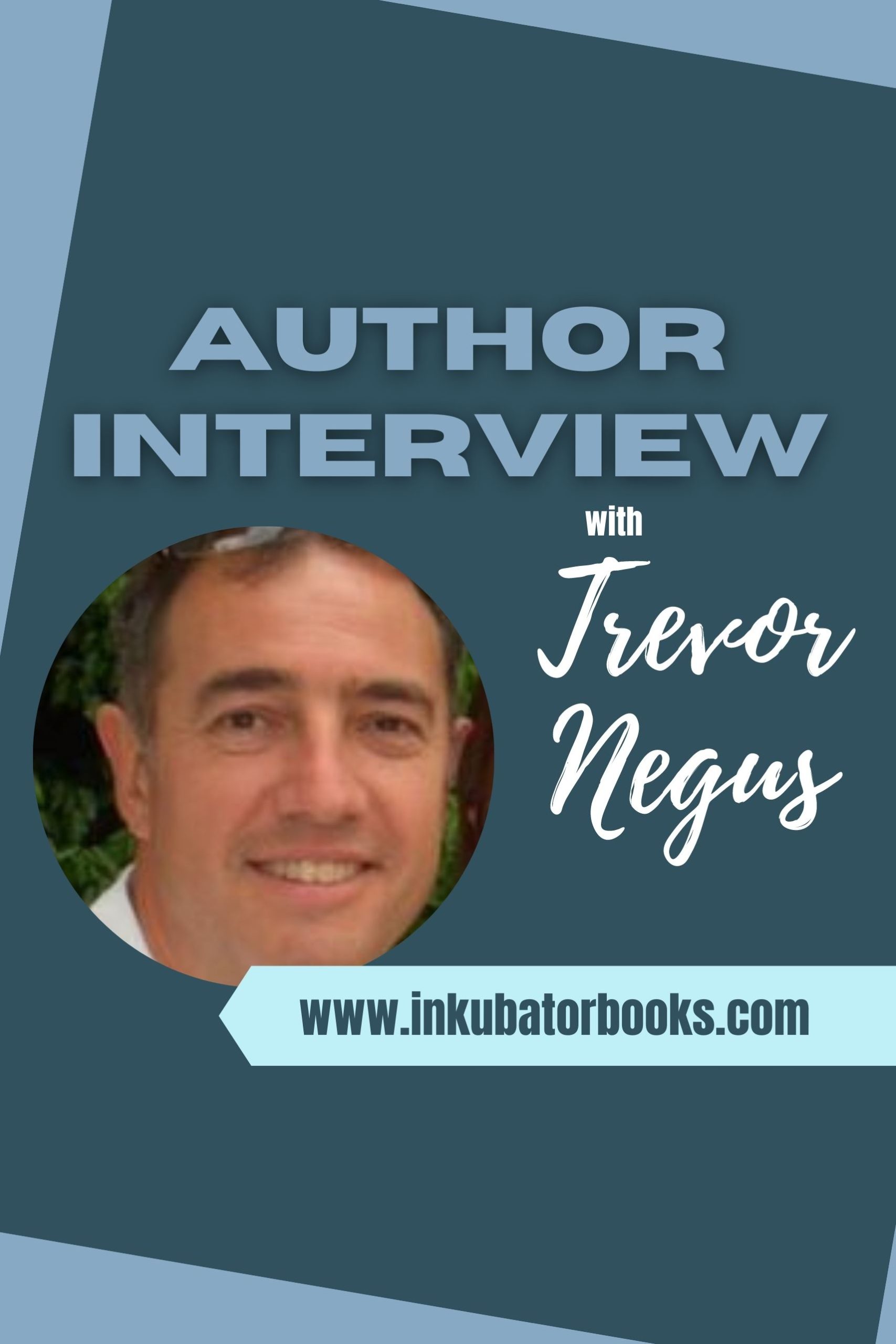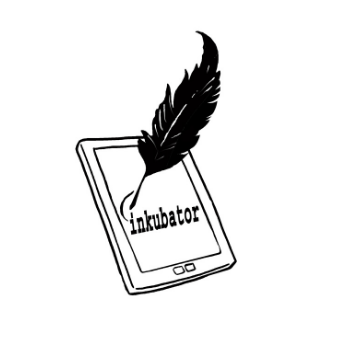Inkubator Books: When did you start writing?
Trevor Negus: I have written all my working life. Police work is very heavy on report writing, statements, court files etc. I started writing for fun, submitting short stories to magazines, in my late thirties. I had a lengthy spell off work, following a bad injury I received on duty and writing helped to fill the days. It was only when I retired from the police that, with a helpful shove from my wife, I decided to try and achieve a long-held dream of writing a novel.
IB: What does a typical day of writing look like for you?
TN: I have always been an early bird. I find my thoughts are clearer first thing in the morning. I usually start writing between 6am and 6.30am. I take a large coffee to my office, work until late morning and then have breakfast. Some days I will return to my desk after breakfast and work on for a couple of hours. I find structuring my working day is important, but I could never be as rigid as thinking I must write a thousand words a day. I very much go with the flow.
IB: Do you base your characters off people you know or are they all the product of your imagination?
TN: Most of my main characters in the DCI Flint series are an amalgamation of several people I have encountered or worked with. I do spend hours people watching when I’m out and about and a lot of my characters are based on people I’ve seen going about their everyday lives.
IB: What’s the most difficult part of your writing process?
TN: I genuinely adore the entire process of writing. Each part has its own charm. Personally, I find the most challenging to be editing my work. I always edit my work on at least three occasions sometimes more, getting gradually harsher each time. I find that writing a first draft is such fun that its easy to get carried away, so that brutal edit stage is vital.
IB: What comes first for you – plot or characters?
TN: Always plot. I find the process of developing plots very similar to the role of specialist interviewing. As an interviewer every question must be planned to achieve the outcome you want and it’s the same with a plot. As a writer I need to know the beginning, middle and end of the story before I type a word. I literally spend days working out plots, developing twists and turns and expanding the characters I’ve created as I work through the plot. It’s always fun to develop the characters I’ve created as I work through the plot. I try to think like each of the characters I’m writing about.
One last comment on this question, although I strive to have a complete plot before I start writing, every story I’ve ever written has altered as that story develops. I find it doesn’t pay to be so rigid in your approach that you can’t allow the story to evolve naturally.
IB: Which of your books is your favorite? Why?
TN: I have to say it would be the book I’m currently working on. I have tried to make each of the DCI Flint novels as different as possible. This throws up varied challenges both in writing style and subject matter to research. Because each of the books are so different, I have enjoyed the process of writing each one.
IB: How would you describe your ideal reader?
TN: I have the greatest admiration for anyone who is a reader. Having been in love with books all my life, I cannot ever imagine ever being without a book on the go. My ideal reader would be anyone who has no preconceived ideas where a certain book will take them. Someone who approaches a story with an open, accepting mind allowing themselves to be transported into a different time and place and to witness events and situations they wouldn’t normally see.
IB: What are you doing when you aren’t writing?
TN: I love to read and so when I’m not working on one of my own books, I spend a lot of time reading. I do find it difficult to work on one of my own novels whist reading another writer’s work. I like to keep my own writing voice clear in my head while I’m working. I’m a fair-weather golfer so on clement afternoons I can often be found on one of the many beautiful golf courses we have in Nottinghamshire.
IB: What does your writing space look like?
TN: I have a small study that I use solely for writing. It’s a quiet space where I can fully concentrate and not be easily distracted. I take my iPad into the study to use for any research questions that may crop up, but I never take my iPhone in when I’m writing. I have shelves on two sides filled with various books, from favourite novels to reference and law books. My desk is populated with photographs of my family but is dominated by a large screen computer, so I can work at eye level. I wrote my first two novels on a laptop and found chronic neck pain (probably linked to the injury I mentioned earlier) was cutting short the time I could work. The larger desktop enables me to sit in a comfortable position. Comfort is important if you want to work steadily for a few hours at a time.
IB: Have you ever traveled to research for a book?
TN: As the DCI Flint series is based in Nottinghamshire, a county I know extremely well, when I do travel to look at a location I don’t have to go far. When I started writing I made a conscious decision to set my stories in the area that I’m totally familiar with as I believe it adds an air of authenticity to the stories.
IB: What genres do you like to read? Who are some of your favorite authors?
TN: I read all kinds of books. If I had to choose a favourite genre it would be biographies and autobiographies. Once a copper always a copper, I suppose. I’m just naturally curious about other people’s lives and what motivates them to do the sometimes-extraordinary things they do. I have so many favourite authors but if I must name a few it would be people like Frederick Forsyth, John Grisham, Stephen King and Ann Cleeves. I consider writers of this stature to be the masters of their craft, but there are so many more whose work I adore.
IB: How do you come up with names for your characters?
TN: This is a very interesting question. Some characters names leap into my brain and seem a perfect fit immediately. There are other occasions where I spend hours worrying if the name fits the character I’m creating. It’s a very weird process, but when it feels right it generally is.
IB: What was your favorite childhood book?
TN: The one book that really captivated me as a youngster was The Coral Island by R.M. Ballantyne. It was given to me when I was a seven-year-old boy, by an uncle who was a bit of an adventurer and who had spent many years in the tropics. He gave me the book and said, ‘If you read this book, you will see the tropical islands I’ve seen, you will meet the native tribes I’ve met and best of all, you’ll be able to experience it all from the comfort of your own bedroom.’
IB: Have you ever abandoned a book you were writing? How did you know it was the right thing to do?
TN: I spend so long working on plots that by the time I start writing, I’m happy with the plot and the content of the story, so I’ve never faced this dilemma. I have scrapped many a plot when I’ve thought it just wasn’t ringing true. I like the thread of truth and authenticity to run through all my books.
IB: Do you have any tips for first-time authors?
TN: Only one. Write because you love to write. To do it for any other reason is folly.
IB: Who inspires you?
TN: It’s difficult to name one individual. I have met and worked alongside so many inspirational people throughout my career. The one constant I must name is my late father, Don. He always encouraged me to follow my own path in life, and to strive to achieve my dreams. I still miss him every day.
IB: If you could eliminate one thing from your daily life, what would it be?
TN: I can’t think of anything in my daily life that I would like to eliminate.
IB: How do you approach your genre in a unique way?
TN: I mentioned earlier that I like to maintain an authenticity to my stories. Because of my background as a detective, I am pedantic over accuracy of police procedure. The challenge, especially in the crime thriller genre, is always to make a plot authentic, accurate and still entertaining.
IB: How do you manage the “whodunit” aspects of your story as far as clues and revelations? Do you outline?
TN: I try to allow the revelations and clues to evolve naturally rather than having a big fanfare reveal at the end of the book. I enjoy books where the author allows the reader to make their own assumptions as the story progresses. Part of the fun of reading crime thrillers is to see if you can work out who has done what and why, before the writer reveals all. I try to make any leads or pointers to the reasons behind the crime as subtle as I can.
IB: How do you relax?
TN: There is nothing I like better than to relax in my garden on a hot summer’s day, with a good book and a cold beer. That, for me, is the epitome of total relaxation.
IB: Who are your first readers when you write a new book?
TN: My wife and my eldest daughter. My wife is my biggest critic and will always give me an honest opinion of whether she thinks it’s any good, and I value that honesty. My daughter because she is the most voracious reader of books I know, she will easily read and enjoy two books a week, so she really knows her stuff. She will make a fabulous writer when she has the time to devote to it. I value their feedback, and any other positive feedback I get, greatly. Writing is a constant learning curve.
IB: What’s one thing you wish your readers knew about you?
TN: How totally different I am to the monsters I create in my books.
(Ed Note: We can absolutely verify this. Trevor is delightful and nothing like the villains in his books!)
IB: Which do you enjoy writing more: dialogue or internal thoughts?
TN: I love the challenge of writing good dialogue. It’s one of the hardest things to master as a writer. I always strive to make conversations between characters as natural as possible and noy clunky or stilted. I do enjoy getting into the minds of the characters I’ve created so writing down their internal thoughts is a natural progression of that process. Both disciplines are great fun to do but require a lot of work and effort to get right.
Thanks to Trevor Negus for sitting down with us today.
Want to read Trevor’s books? Check out his titles on Amazon.
You can find him at the following places:
Website: www.trevornegus-author.com
Facebook: https://www.facebook.com/Trevor-Negus-Author-267980013585533
Linkedin: Trevor Negus
Instagram: https://www.instagram.com/trevnegus/

